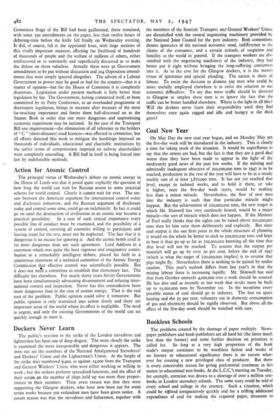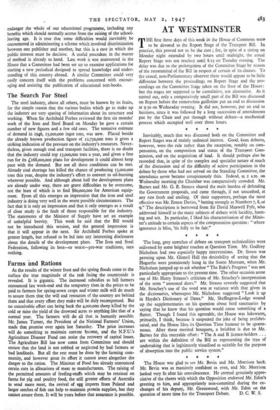Bookless Schools
The problems created by the shortage of paper multiply. News- paper publishers and book-publishers are all hard hit (the latter much less than the former) and some further decision on priorities is called for. So - long as a very high proportion of the book trade's output continues to be worthless fiction and works of no literary or educational• significance there is no reason what- ever for creating a new privileged class of producer. But there is every conceivable reason for giving preferential treatment in this matter to educational text-books. At the L.C.C.'s meeting on Tuesday, for example, attention was drawn to a shortage of over a million text- books in London secondary schools. The same story could be told of every school and college in the country. Such a situation, which could be righted comparatively quickly and for a trifling additional expenditure of coal for making the required paper, threatens to endanger the whole of our educational programme, including any benefits which should normally accrue from the raising of the school- leaving age. It is true that some difficulties would inevitably be encountered in administering a scheme which involved discrimination between one publisher and another, but this is a case in which the public interest must be decisive. A useful precedent in the matter of method is already to hand. Last week it was announced in the House that a Committee had been set up to examine applications for starting a new periodical designed to spread knowledge and under- standing of this country abroad. A similar Committee could very easily concern itself with the problems concerned with encour- aging and assisting the publication of educational text-books.



































 Previous page
Previous page